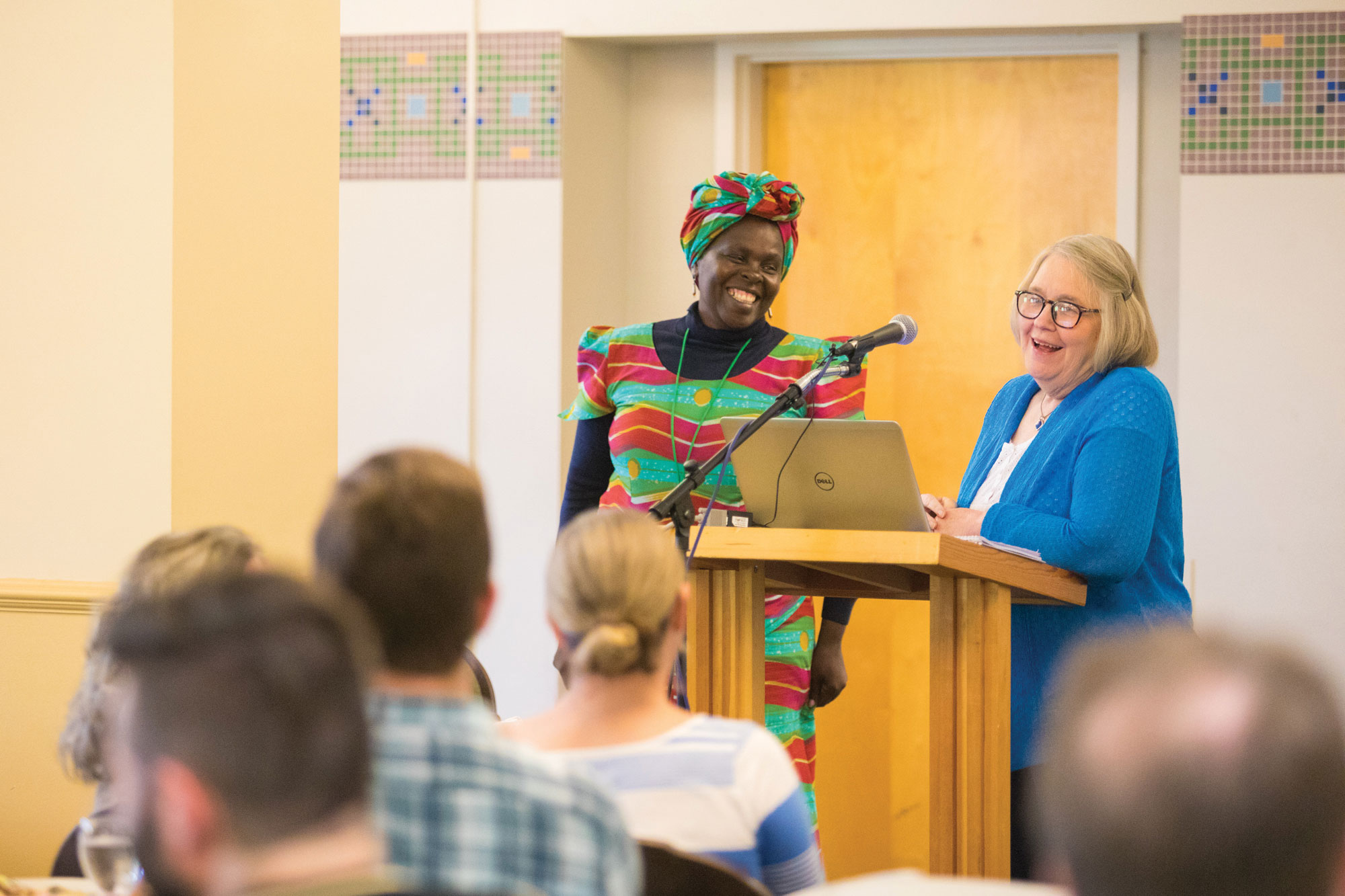
Tecla Namachanja Wanjala MA ‘03 was honored as the 2019 Peacebuilder of the Year in May during the Summer Peacebuilding Institute. She accepted the award on behalf of her family, several of whom were present, but also “on behalf of Kenya, and not just Kenya, but Africa.”
“I don’t want to think that this is just my honor,” she said, adding thanks to EMU and to her fellow CJP alumni working together in Africa on peacebuilding initiatives.
Over nearly 30 years, Wanjala has worked in many countries, including Sri Lanka, Cambodia, South Sudan, Burundi, Ethiopia, Somalia and Rwanda, in various aspects of peacebuilding, from arbitration and mediation to reconciliation and trauma healing. Currently the board chair for the Green String Network, she has served as commissioner and acting chair of Kenya’s Truth, Justice and Reconciliation Commission and in other roles with organizations such as PeaceNet and Pact International.
Wanjala’s peacebuilding work began with Somali refugees in 1991, encountering “trauma when we didn’t know what trauma was.” She came to EMU after meeting Jan Jenner MA ‘99, then a co-country representative with Mennonite Central Committee in Kenya. (Jenner ultimately became the first director of CJP’s Practice and Training Institute and then of the Women’s Peacebuilding Leadership Program.)
“Jan is the one who identified me in a small village and saw my potential,” said Wanjala, who was working with Catholic Relief Services on resettlement issues. “She brought me on the national level, encouraged me to come to EMU. I looked for funding and she said come by faith.”
At EMU, Wanjala took five courses in trauma, including Strategies for Trauma Awareness and Resilience (STAR) trainings. She created an independent study to synthesize concepts, “to think about how we do this in Africa.”
Later, she collaborated with colleagues from the Green String Network who also were familiar with STAR materials: “We communicate best through folklore, stories and images, and so we took the STAR material, translated it into Kiswahili and developed images for each session. This is how Kumekucha was born.”
The Kumekucha program – Kiswahili for “It’s a new dawn” – empowers local leaders to create “space for people to talk, to cry, to affirm each other” in dealing with the country’s historic and current trauma, Wanjala said. The social healing program has expanded from communities to police and prison wardens.
Wanjala was among six Kenyans and three internationals selected as commissioners to the Kenya Truth, Justice and Reconciliation Commission, established to investigate human rights violations and other historical injustices in Kenya between 1963 and 2008. She eventually became acting chair, leading efforts to record and witness testimony.
Though implementation of the commission’s recommendations has not been fulfilled, she says that is not a reason to give up on the hope of reconciliation and the creation of healing spaces in communities. It is important to be ready to see “windows of opportunity” and to gain supporters who agree in the approach and importance of the work.
“Start small, people will hear and join the river along the way,” she said.